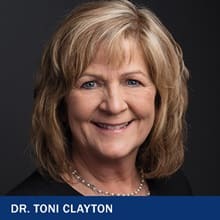
The MBA That Fits Your Life
- Just over $19K total tuition
- Earn credentials along the way
- Complete in about 1 year
- No GRE/GMAT required
- No application fee or SAT/ACT scores
- 1.8 million healthcare jobs projected to open annually through 20321
MBA in Healthcare Management Online Overview
How can you fit healthcare, business and your career goals into one master's degree program? It's possible, with Southern New Hampshire University's Master of Business Administration (MBA) in Healthcare Management.
Healthcare is growing – and it's growing fast. To move your skills into the future, SNHU has revised its traditional MBA curriculum to better serve you in a role with high-performing healthcare companies.
The skills you'll learn in the MBA in Healthcare Management program help prepare you to transition into or excel in leadership roles in hospitals, clinics, medical offices, healthcare corporations, insurance and pharmaceuticals. And you'll get the hands-on experience you need through your participation in scenario-based learning, giving you the problem-solving experience you need to succeed.
Our 10-course program can help you excel at managing the day-to-day intricacies of major organizations, including healthcare systems, as well as develop the skills to think critically, fix programs and undertake strategic planning. And the updated curriculum was also designed to help you succeed throughout the program: With more fluidity in assignment due dates, some of your assignments will now span multiple modules.
At just over $19,000 total tuition, SNHU's MBA can be completed quickly – without sacrificing the rigor and complexity expected from an in-demand graduate program.
The program is designed for recent undergraduates to established professionals – and everyone in between.
Should you want to focus more on healthcare, SNHU also offers master's in healthcare administration and a master's in management with a concentration in healthcare.
What You'll Learn
- The complexities of healthcare management
- Data analysis and interpretation
- Adaptable strategies for an organization
- The cultivation of culturally aware and responsive teams
- Plans around culture, ethical and legal standards, and sustainable practices
How You'll Learn
At SNHU, you'll get support from day 1 to graduation and beyond. And with no set class times, 24/7 access to the online classroom and helpful learning resources along the way, you'll have everything you need to reach your goals.
Career Outlook
It's no secret that the healthcare industry is growing. It's even less of a secret that an MBA stands out on a resume. And when you put them together, you have an unstoppable combination.

With that, the job outlook for medical and health services professionals is bright as the healthcare industry continues to expand and diversify.
“There is a need for healthcare administrators and healthcare managers to provide leadership for day-to-day operations and for monitoring clinical and non-clinical staffing needs,” said Dr. Toni Clayton, executive director of healthcare professions at Southern New Hampshire University.
Graduates of MBA programs are often in demand. In fact, according to a Graduate Management Admission Council (GMAC) survey, the demand for hiring graduate management talent is now returning to pre-pandemic levels.2
Job Growth
Medical and health services managers jobs are expected to grow 28% through 2032.1
Salary
Medical and health services may see six-figure salaries: the 2022 median pay for manager roles was $104,830.1 That's more than double the median salary of all occupations in the U.S.
Understanding the Numbers
When reviewing job growth and salary information, it’s important to remember that actual numbers can vary due to many different factors — like years of experience in the role, industry of employment, geographic location, worker skill and economic conditions. Cited projections do not guarantee actual salary or job growth.
The GMAC survey also showed healthcare/pharma as one of the top industries expecting the demand for business graduates to remain stable or increase.2
In addition, 72% of healthcare/pharma recruiters state that leaders in the industry tend to have graduate business school education, according to the report.2
An MBA can also help you develop traits that work well for executive roles in other industries, such as:
- Collaborative intent: Cast a wider net when it comes to who you need to collaborate with. Through the program's group work, you'll better position yourself to work with a wide variety of people from all over the world.
- Execution discipline: Merge quality and speed to help improve service, quality and cost – all while learning how to create and sustain high-performing organizations. Keep in mind that patients want accessibility and affordability.
- Strategic nimbleness: Understand that reinvention will be key to your organization's longevity. Stay relevant by continuing to focus on access, data and quality for short- and long-term strategic planning.
So while an MBA is in great demand, focusing on healthcare can equip you to be most attractive to large, growing organizations.
Where Could You Work?
Hospitals
From branding and marketing to finance and analytics, hospitals are filled with non-medical opportunities and administrative roles needing capable leaders to ensure patients received the best care.
Private Medical Practices
Ensure that private medical facilities – including doctor's offices – are run well when you manage both people and process.
Nursing & Residential Care Facilities
As baby boomers age and demands increase for elder care, patient support will require more facilities and staffing management to support this population's needs.
Government
Think of opportunities at national, state and local agencies where you can help make business decisions related to healthcare.
Health Insurance Organizations
Leverage healthcare laws, regulations and policy to support the massive and complex insurance industry.
Healthcare Technology
Make a difference when you help promote the use of effective technology in a variety of healthcare settings.
Start Your Journey Toward an Online MBA Degree
Why SNHU for Your Master's in Healthcare Management
Flexible
With no set class meeting times, you can learn on your schedule and access online course materials 24/7.
Affordable
As part of our mission to make higher education more accessible, we’re committed to keeping our tuition rates low. In fact, we offer some of the lowest online tuition rates in the nation.
Prior coursework and work experience could also help you save time and money. SNHU’s transfer policy allows you to transfer up to 12 credits from your previous institution. You could also earn college credit for previous work experience.
Respected
Founded in 1932, Southern New Hampshire University is a private, nonprofit institution with over 160,000 graduates across the country. SNHU is accredited by the New England Commission of Higher Education (NECHE), a regional accreditor, which advocates for institutional improvement and public assurance of quality.
Recently, SNHU has been nationally recognized for leading the way toward more innovative, affordable and achievable education:
- “Most Innovative” regional university honors from U.S. News & World Report each year since 2015
- A $1 million grant from Google.org to explore soft skills assessments for high-need youth
- Recognition as a 2017 Digital Learning Innovator by the Online Learning Consortium
Network
At Southern New Hampshire University, you'll have access to a powerful network of more than 300,000 students, alumni and staff that can help support you long after graduation. Our instructors offer relevant, real-world expertise to help you understand and navigate the field. Plus, with our growing, nationwide alumni network, you'll have the potential to tap into a number of internship and career opportunities.
93.6% of online students would recommend SNHU (according to a 2022 survey with 17,000+ respondents). Discover why SNHU may be right for you.
Admission Requirements
Expanding access to quality higher education means removing the barriers that may stand between you and your degree. That’s why you can apply at any time and get a decision within days of submitting all required materials:
- Completed free application
- Undergraduate transcripts, which we can retrieve for you by submitting a transcript request form
Acceptance decisions are made on a rolling basis throughout the year for our 5 graduate terms.
How to Apply
If you’re ready to apply, follow these simple steps to get the process going:
- Complete free graduate application
- Submit undergraduate transcripts
- Work with an admission counselor to explore financial options and walk through application process
Get Real-World Experience

"Scenario-based learning takes actual case studies from industry and requires the student to apply the class principles for the same deliverables that would be required in the industry. This allows for an authentic experience and practice of creating actual industry-standard deliverables."
Courses & Curriculum
The subject-matter experts at Southern New Hampshire University have turned the traditional online MBA into a program that lets you practice the skills you'll need to lead healthcare while you're studying them.
Revised in 2021, the major courses have been trimmed down to 7 core courses in broad discipline areas, with each class weaving critical cross-cutting business themes – like leadership, strategy, management, technology and innovation. You'll enhance your business skill sets, strengthen your marketability and open doors for your career.
Within your classes, you'll have the opportunity to participate in scenario-based learning projects. Solving a problem on your own or with a group, you'll need to apply critical and creative thinking, as well as problem-solving skills, in a real-world context.
"The new program is more centered around creating the kinds of deliverables, including analyses and reports, that will be expected from an MBA in real-world practice," said Dr. Andrew Gallion, an adjunct instructor who contributed to the updated MBA curriculum. "While the exercises are academic, their application is absolutely based on actual scenarios in industry, and the resulting work products are measured against industry standards."
Aside from scenario-based learning – where your instructor will act as a mentor – the program includes:
- Fluid learning paths: Take advantage of more flexibility than ever before in assignment due dates and fluidity of learning, with assignments that throughout the course that draw relationships between business principles.
- Group work: Collaborate and discuss work with classmates – with individual contributions and grades.
- Multimedia: Watch videos featuring industry leaders sharing business insights, use video communication tools and digest complex topics through animations.
- Timely resources: Consume relevant resource material from leading professional organizations and publications .
What's more, built into the courses are teachings that position you to earn industry-recognized credentials – like Power BI, Microsoft Excel and Tableau – throughout the length of your program. That way, you're earning more resume-building skills even before you get your degree.
In addition to gaining a solid foundation in business management in your core classes, earning your MBA in Healthcare online can also expand your understanding of:
- Social, ethical and organizational challenges faced by healthcare workers and how to effectively handle these challenges
- Introducing and managing clinical information systems and their effects on patients and interdisciplinary teams
- Current trends in healthcare informatics practices and how technology can improve patient care
- Healthcare industry trends, including quality care initiatives, population health management, medical law and ethics, and other current topics
“Healthcare administrators support policies and processes for the delivery of care and services that impact our patient populations,” said Dr. Toni Clayton, executive director of healthcare professions at Southern New Hampshire University. “It requires leaders to apply healthcare principles and methodologies as they manage people and processes."
The MBA in Healthcare Management online program may include classes like:
- Healthcare Informatics: Dive deep into the history and current state of healthcare, as well as how the industry uses information systems to improve patient care.
- Topics in Health Administration: Develop organizational processes and structures using the total quality management (TQM) approach to deliver health services.
- Social & Organizational Issues in Healthcare: Study change management strategies, including the impact of introducing or enhancing clinical information systems and the effect of these systems on patients and on interdisciplinary teams within the healthcare setting.
"These courses, combined with the business curriculum, help students to expand business management theories and methodologies to a focus on healthcare delivery systems," Clayton said.
The healthcare concentration was designed to provide a solid understanding of business as it relates to the healthcare industry.

Now, said Scott, responsibilities like creating budgets are no longer a mysterious process. "It all makes perfect sense to me now," he said.
Classes are taught by instructors with experience in business, giving you insight into what the workforce needs and is doing right now.

Don't have a business background? No problem. Our MBA is accessible to everyone. Interested students must have a conferred undergraduate degree for acceptance, but it can be in any field. Those without an undergraduate degree in business or a related field may be asked to complete up to 2 foundation courses to get started. These foundations cover essential business skill sets and can be used to satisfy elective requirements for the general-track MBA – a rigorous program that positions you for many positions throughout the business workforce. With foundations, the maximum length of your online MBA would be 36 credits.
Attend full time or part time. Students in the MBA have the option to enroll full time (at 2 classes per term) or part time (with 1 class per term). Full-time students should be able to complete the program in about 1 year, while part-time students could finish in about 2 years. Our students are busy, often juggling jobs, family and other obligations, so you may want to work with your academic advisor to identify the course plan that works for you. The good news is, you can switch from full time to part time and back again as often as you want.
| View Full Curriculum in the Catalog |
|---|
| MBA - Healthcare Management |
| Courses May Include | ||
|---|---|---|
| Healthcare Management | ||
| HIM 500 | Healthcare Informatics | Students will learn the history and current state of healthcare and how the industry uses information systems. Throughout the course students will discuss types of information systems, such as the electronic medical record (EMR), laboratory and radiology systems and more. Students will also study trends in new practices, such as telemedicine and home healthcare, and how they function in various healthcare settings. Finally, students will explore how these and other industry trends, with the use of technology, can improve patient care. |
| HRM 630 | Topics in Health Administration | This course focuses on developing organizational processes and structures utilizing the Total Quality Management approach to deliver health services which meet the needs of diverse clientele and a complex environment. Included are topical presentations by health care providers concentrating on the structure and delivery of quality health services. |
| IHP 600 | Social & Organizational Issues in Healthcare | Students will learn the social, ethical and organizational challenges healthcare workers at all levels face with the incorporation of technology into the healthcare setting. Students will study change management strategies, current in the Healthcare Industry, including the impact of introducing or enhancing clinical information systems, while providing quality care, and the effect of these systems on patients and on interdisciplinary teams within the healthcare setting. |
| MBA 530 | Leading People and Organizations | Impactful leaders have the ability to define direction, understand their uniqueness, communicate effectively, and use emotional intelligence to lead people, teams, and organizations. Students will explore leadership theories, issues, and trends, while also applying evidence-based methodologies and tools to assess and elevate their personal leadership plan. By connecting leadership theories and methodologies to trends, challenges, and opportunities facing leadership, this course will help students to effectively lead and empower others. |
| MBA 699 | Strategic Opportunity Management | Impactful leaders move strategic initiatives forward with innovation, collaboration, and informed, data-driven decision-making. In this course, students will assess conditions, processes, and resources that impact how leaders design adaptive strategies, using emotional and business intelligence to manage strategic objectives. Students will solve complex problems, manage opportunities, and build sustainable stakeholder relationships. |
| Total Credits: 30 | ||
Minimum Hardware Requirements
|
Component Type |
PC (Windows OS) |
Apple (Mac OS) |
|---|---|---|
|
Operating System |
Currently supported operating system from Microsoft. |
Currently supported operating system from Apple. |
|
Memory (RAM) |
8GB or higher |
8GB or higher |
|
Hard Drive |
100GB or higher |
100GB or higher |
|
Antivirus Software |
Required for campus students. Strongly recommended for online students. |
Required for campus students. Strongly recommended for online students. |
|
SNHU Purchase Programs |
||
|
Internet/ Bandwidth |
5 Mbps Download, 1 Mbps Upload and less than 100 ms Latency |
5 Mbps Download, 1 Mbps Upload and less than 100 ms Latency |
Notes:
- Laptop or desktop? Whichever you choose depends on your personal preference and work style, though laptops tend to offer more flexibility.
- Note: Chromebooks (Chrome OS) and iPads (iOS) do not meet the minimum requirements for coursework at SNHU. These offer limited functionality and do not work with some course technologies. They are not acceptable as the only device you use for coursework. While these devices are convenient and may be used for some course functions, they cannot be your primary device. SNHU does, however, have an affordable laptop option that it recommends: Dell Latitude 3301 with Windows 10.
- Office 365 Pro Plus is available free of charge to all SNHU students and faculty. The Office suite will remain free while you are a student at SNHU. Upon graduation you may convert to a paid subscription if you wish. Terms subject to change at Microsoft's discretion. Review system requirements for Microsoft 365 plans for business, education and government.
- Antivirus software: Check with your ISP as they may offer antivirus software free of charge to subscribers.
Master of Business Administration (MBA) Technical Requirements
Video Communication Platform:
- Mac or PC desktop or laptop (not a mobile device or tablet)
- Webcam
- Microphone
- Required: At least 1 Mbps upload/download speed
- Learn more about our detailed technical requirements
Internet Connectivity for Virtual Labs:
- Recommended: 5Mbps upload/download speed with less than 40ms latency
University Accreditation

Tuition & Fees
Tuition rates for SNHU's online degree programs are among the lowest in the nation. We offer a 25% tuition discount for U.S. service members, both full and part time, and the spouses of those on active duty.
| Online Graduate Programs | Per Course | Per Credit Hour | Annual Cost for 15 credits |
|---|---|---|---|
| Degree/Certificates | $1,911 | $637 | $9,555 |
|
Degree/Certificates (U.S. service members, both full and part time, and the spouses of those on active duty)* |
$1,410 | $470 | $7,050 |
Tuition rates are subject to change and are reviewed annually.
*Note: students receiving this rate are not eligible for additional discounts.
Additional Costs:
Course Materials ($ varies by course). Foundational courses may be required based on your undergraduate course history, which may result in additional cost.
Frequently Asked Questions
What can you do with an MBA in Healthcare Management?
As healthcare is one of the fastest-rising career fields today, an MBA in Healthcare Management allows you to combine leadership, business and management principles into an exciting and dynamic career.
While some people with an MBA in Healthcare Management work in hospitals, many also work in healthcare organizations, doctor’s offices or residential care facilities. There are also career options in local, state and federal government.
Careers in marketing, market research, project management and strategy within healthcare organizations are also great career options.
With an MBA in Healthcare Management, you could take on business roles in healthcare as well as in marketing, business management, communications, consulting, finance or project management. This is a truly dynamic degree that offers many career paths. Some other career options are:
- Nursing home administrator, where you would manage staff, finances, and business processes for the facility you lead. You may also oversee resident care.
- Clinical director, where you could run a specific department, such as nursing, physical therapy or surgery. This role would likely include policy making, goal setting, and writing and designing procedures for your department.
- Heath information executive, where you would be responsible for the maintenance and security of all patient records and data. Applying business skills to the management and operationalization or health information systems is key here.
An MBA in Healthcare Management could also help nurses, doctors, emergency medical technicians and other experienced medical personnel advance in their careers.
Because healthcare is one of the top career fields that companies plan to fill with MBA talent, the professional possibilities are truly endless.2
How much can you make with an MBA in Healthcare Management?
In general, the median annual wage for medical and health services managers was $104,830 in May 2022 – a career path you may be able to fast-track with your healthcare MBA.1
Medical and health services managers who commanded the biggest salaries work in hospitals, with median annual wages of $125,280 in May 2022.1 Managers in government and outpatient care centers also have considerable earning potential, with median annual salaries of $119,100 and $101,890, respectively.1
Many professionals opt to earn their MBA because of that potential salary boost. A survey from the Graduate Management Admission Council (GMAC) cites that 86% of MBA alumni in the U.S. feel that the master's degree can increase their earning power.2
In healthcare management, job prospects continue to trend in a positive direction. According to the U.S. Bureau of Labor Statistics, employment for all healthcare occupations is expected to grow 1.8 million jobs, on average, each year through 2032.1
This growth and demand is expected largely because the population is aging. That creates more demand on healthcare services across the board.
How do I get an MBA in Healthcare Management?
Whether you get your bachelor’s degree online or on campus, an undergraduate degree is necessary before earning your MBA in Healthcare Management.
Because the skills in an MBA are so broad, a variety of business degrees, nursing degrees and accounting and finance programs could provide a good foundation. With a degree in any of those areas, or in many other fields, you may be ready to pursue your MBA.
While working as a nurse or other healthcare professional is not required, many people begin their career just that way. Experience as a nurse, medical records specialist or in an administrative role can be helpful before deciding that an MBA in Healthcare Management is right for you.
At Southern New Hampshire University, earning a healthcare MBA is as simple as picking up the phone. Call our admission team to get started or fill out an online request for information. You’ll be matched with a counselor who can help you choose appropriate courses to earn your degree at your pace.
Once you’re enrolled, our 24/7 online accessibility for courses makes attending class customizable and convenient. Multiple term start dates throughout the year allow you to complete your degree on a schedule that works for you.
What is a healthcare MBA?
A healthcare MBA is an advanced business degree with a focus in the healthcare industry. Courses provide a strong business foundation in areas such as management and operations, but with the added bonus of allowing you to specialize in healthcare management.
The healthcare MBA at Southern New Hampshire University offers a 7-course business core that merges traditional and innovative resources and topics. Revised in 2021, the courses reflect tomorrow's business needs.
"This new program looks away from the design and content of past, more traditional programs and forward into the future for the skills needed to succeed in the Fourth Industrial Revolution," said Dr. Andrew Gallion, an adjunct instructor who contributed to the updated MBA curriculum. "The program nods to critical traditional subjects such as accounting and marketing but also leans heavily on thematically weaving concepts such as emotional intelligence and innovation thinking and processes throughout the courses."
It then allows you to build on that with 3 core healthcare management courses: Healthcare Informatics, Topics in Health Administration and Social & Organizational Issues in Healthcare.
With a dedicated focus on healthcare, the MBA in Healthcare Management at SNHU can prepare you for an exciting career in a field that is increasingly in demand.
Breonna Williamson '21 chose the healthcare concentration because of her experience in the field.
"I chose healthcare administration because having been a practicing respiratory therapist, I am most familiar with the healthcare business sector," she said. "I have a passion for operations in the way of process development and process improvement. I was told by the COO of one of my past employers that in order to join his team, I had to obtain my MBA."
Which is better, an MBA or MHA?
An MBA in Healthcare Management is a business degree with a healthcare focus. An MHA is a healthcare degree with a business focus. Both can get you where you need to go, but the MBA provides a broader foundation, allowing you to specialize in healthcare, or take your career toward government, policy, or the insurance and pharmaceutical industries if you wish.
With Southern New Hampshire University’s MBA in Healthcare Management, you can gain a strong base in business principles and build on that with the healthcare-related concentration of your choice. You'll also study healthcare informatics, topics in healthcare administration, and social and organizational issues in healthcare to round out your business knowledge and prepare you to excel as a leader in business and healthcare.
And because all SNHU MBA programs have the same 7-course core, you open doors throughout many business disciplines, like marketing, finance, human resources or operations.
What is the scope of an MBA in Healthcare Management?
Because the healthcare industry is growing at such a fast rate, an MBA in Healthcare Management can give you the tools to stay on top of trends while developing the skills that give you a competitive advantage.
An MBA needs to prepare you to advance your career. At Southern New Hampshire University, the curriculum – revised in 2021 – sets you up for success through hands-on projects that are used in the workforce today.
Creating those projects through the lens of healthcare means you have the opportunity to use these skills tomorrow in your job. And that means that with each class, you can develop marketable skills in leadership and management. You may choose to work in a hospital, doctor’s office or long-term care facility. Or perhaps a career in the pharmaceutical or government sectors interests you. There are opportunities with insurance organizations as well.
No matter which industry or role you seek, you'll need to be prepared with a set of strong analytical and communication skills. Being able to write policies, think critically and adapt to new laws are critical aspects of a career in healthcare management.
A strong leader in healthcare management also has an interest in technology. Staying up to date in healthcare technology and data analytics can set you apart from the competition in a lucrative job market. Learning to analyze data, classify software and maintain electronic health record systems are examples of how you may use technology with your MBA in Healthcare Management.
Related Articles

What Can You Do With a Public Health Degree?

7th Annual SNHU Conference Explores Technology in Healthcare

What is Epidemiology?
References
Sources & Citations (1, 2)
1Bureau of Labor Statistics, U.S. Department of Labor, Occupational Outlook Handbook, on the internet, at:
- https://www.bls.gov/ooh/healthcare/home.htm (viewed Nov. 13, 2023)
- https://www.bls.gov/ooh/management/home.htm (viewed Nov. 13, 2023)
- https://www.bls.gov/ooh/management/medical-and-health-services-managers.htm (viewed Nov. 13, 2023)
Cited projections may not reflect local and/or short-term economic or job conditions and do not guarantee actual job growth.
2Graduate Management Admission Council, on the internet, at:
- https://www.gmac.com/-/media/files/gmac/research/employment-outlook/2021_crs-demand-of-gm-talent.pdf (viewed Nov. 13, 2023)
- https://www.gmac.com/-/media/files/gmac/research/enrolled-students/2022/2022_enrolled_students_survey_summary_report_final.pdf

